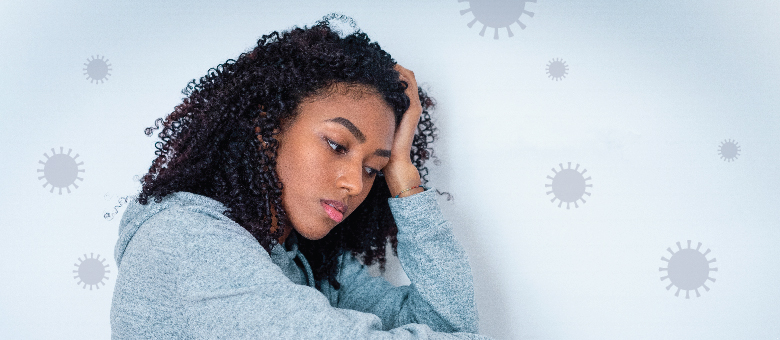This material was written by a Dallas College licensed counselor. All views expressed in this piece are their own and do not necessarily reflect Dallas College
Things are finally beginning to open up! Stores, restaurants and even some movie theaters are open again. We can go out, explore and have fun! In short, people are socializing and dating in person again.
And yet, with this new enjoyment of old pleasures and fun, some old concerns are also returning.
There are plenty of concerns that come with dating: people who won’t take “no” for an answer, force themselves on you and eventually become physically controlling. All that is, unfortunately, all too common. However, there are ways you can take action and look out for yourself.
Avoid Quarantine Fatigue
What’s a good-hearted person who just wants to have a nice time supposed to do? There are some fundamental things you should remember before venturing out with someone again:
- Knowing someone online isn’t really knowing them
- Do not be alone with someone until you’ve known them for a while and are genuinely sure of their intentions
- Meet them where you are going, go in your own car and go home in your own car
- Get together in a public place and/or in a group of people
- Be sure someone knows where you will be when and with who (family, friends, etc.)
Apps That Can Keep You Safe
- The bSafe app features a follow me home option so users can have pre-selected guardians watch them walk through a parking lot or garage through live streaming video and simultaneous GPS tracking. It automatically records video, makes emergency phone calls, turns on a flashlight and sounds a loud alarm to frighten attackers. It is a paid subscription.
- Circle of 6 allows users to plan for what they want to do in the case of assault. The app sends a prewritten message (which the user writes) to six people the user manually puts in their circle and their exact location coordinates. This app is free.
- The td411 app is designed for teens and college students. Developed by teen focus groups, the app is in both English and Spanish and features helpful info on healthy relationships, warning signs of abuse and has links to national resources. The app is also free.
- If you’re in a relationship, the myPlan app gives you tools to evaluate your relationship, danger signs, how to stay safe, steps to take to leave an abusive relationship and safety in your use of media. The app is both free and available in Spanish.
24/7 Hotlines Are Available
- National Sexual Assault Hotline: 800-656-HOPE (4673)
- Rape Crisis Center: (972) 641-7273 (also for assault, services available in Spanish)
Your Dallas College counselors are also very sensitive to and trained to help with sexual assault. Their services are very confidential, free and available in Spanish. Please do not hesitate to call your Counseling Services if you have had an experience that scared you, hurt you, upset you or confused you. Did you know that research today shows one in five sexual assault victims are men, especially those younger than 30? Please do not let embarrassment or shame or fear keep you from getting the help you need and deserve!
Written by Dr. Jesse Gonzalez, Personal Counselor at Dallas College
Dallas College Online Counseling for Students
Our professional counselors are still working hard for you! Did you know you can meet with a counselor for a virtual one-on-one session – for free?
Currently enrolled students can set up a virtual meeting through a safe and secure WebEx link. To get started, all you must do is contact your campus Counseling Center at the email address listed below. From there, a member of your campus Counseling Center team will walk you through the necessary pre-appointment procedure. Dallas College believes it’s okay to say you’re not okay.
Brookhaven Counseling Center: bhccounseling@dcccd.edu
Cedar Valley Counseling Center: cvccounseling@dcccd.edu
Eastfield Counseling Center: jasminegarcia@dcccd.edu
El Centro Counseling Center: ECCStudentCounseling@dcccd.edu
Mountain View Counseling Center: jgonzalez@dcccd.edu
North Lake Counseling Center: nlccounseling@dcccd.edu
Richland Counseling Center: Counseling-RLC@dcccd.edu
Interactive Sessions by Topic
Dallas College counselors proudly support TAO (Therapy Assistance Online) as a helpful resource that offers more than 150 brief, interactive sessions on various topics like mental health, wellness and substance abuse. Check out the following sessions:
- Let’s Talk about Anxiety
- Enrollment Key: #kick-it
- Mindfulness 101
- Enrollment Key: #keepcalm
- Stress Management
- Enrollment Key: #kickstress
Please review our event information and register for this free event by visiting the Counseling Workshops and Events page.
Please note: If you are experiencing a mental health crisis, please call 9-1-1 or visit the nearest hospital emergency room rather than request an online counseling session.
Community Mental Health Resources Available in Our Area
- North Texas Behavioral Health Authority can help pay for community psychiatric, mental health and substance abuse services — please call 214-366-9407.
- Suicide and Crisis Center of North Texas — please call 214-828-1000.
- National Veterans Crisis Line — please call 800-273-8255 and press 1.
- National Domestic Violence Hotline —please call 800-799-7233.
- National Sexual Assault Hotline — please call 800-656-4673.
- Message 741741 from anywhere in the United States to text with a trained crisis counselor. Heads up —standard messaging rates may apply.
It’s okay to say. If you see something that could help someone else – spread the word and share this information. Even if you’re not dealing with a specific mental health issue, chances are someone you do know is.
